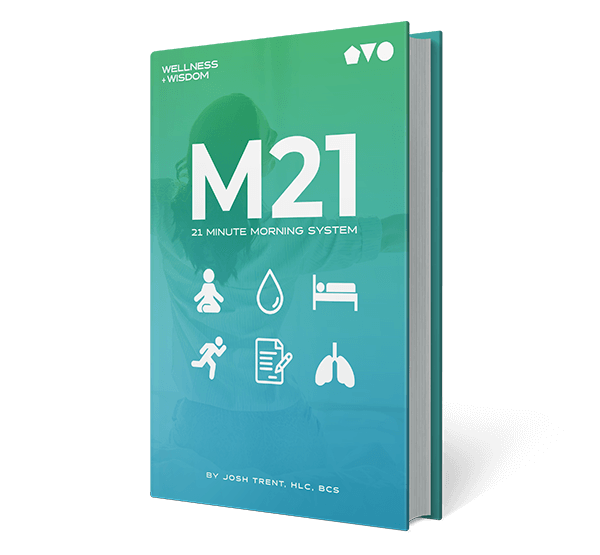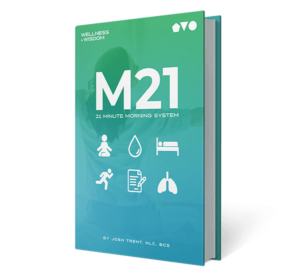 The pursuit of longevity, a quest as old as humanity itself, has always been intertwined with the mysteries of health and well-being. Today, this quest is no longer just about finding the mythical fountain of youth; it's grounded in scientific research and understanding. While our genetic blueprint lays the groundwork for our potential lifespan, emerging studies underscore a compelling narrative: the choices we make every day have a significant impact on our longevity. This realization highlights a shift towards actionable strategies for extending our life, where MoleQlar emerges as a pivotal resource in navigating the complexities of modern health science.
The pursuit of longevity, a quest as old as humanity itself, has always been intertwined with the mysteries of health and well-being. Today, this quest is no longer just about finding the mythical fountain of youth; it's grounded in scientific research and understanding. While our genetic blueprint lays the groundwork for our potential lifespan, emerging studies underscore a compelling narrative: the choices we make every day have a significant impact on our longevity. This realization highlights a shift towards actionable strategies for extending our life, where MoleQlar emerges as a pivotal resource in navigating the complexities of modern health science.
Table of Contents
The Role of Genetics in Longevity
It's a well-acknowledged fact that genetics play a role in determining our lifespan, but they don't hold all the cards. Research indicates that genetics account for about 25% to 30% of an individual's lifespan, leaving a substantial portion influenced by environmental factors and personal choices. This balance between predetermined factors and controllable elements forms the basis of our journey towards longevity.
“The power of genetics shapes the foundation, but it's our lifestyle choices that build the house.”
In diving into the genetic aspects of longevity, it's crucial to understand that while we cannot change our DNA, we can influence the expression of genes associated with aging and health. Epigenetics, the study of how behaviors and environment can cause changes that affect the way genes work, has shown that lifestyle choices can modulate gene expression to favor longevity. This insight not only empowers individuals to take charge of their health outcomes but also underscores the importance of daily habits and choices in the quest for a longer life.
Nutritional Choices for a Longer Life
When it comes to longevity, what we put on our plate plays a starring role. Nutrition is a key lever in promoting health and extending life, with evidence mounting on the benefits of specific diets and food components.
- Key nutrients for longevity include antioxidants, found in berries and dark chocolate, which combat oxidative stress, and omega-3 fatty acids, prevalent in fatty fish, which support heart health.
- The science behind caloric restriction suggests that reducing calorie intake can extend lifespan by slowing down aging processes.
- Dietary patterns for longevity often highlight plant-based diets, which have been associated with reduced risks of chronic diseases and longer life expectancy.
A landmark study focusing on the Mediterranean diet, which is rich in vegetables, fruits, nuts, whole grains, and olive oil, has linked this eating pattern to a reduction in heart disease and increased lifespan. This and similar research underline the notion that longevity is closely tied to dietary choices, advocating for a balanced, nutrient-rich diet as a cornerstone of a long and healthy life.
Physical Activity: The Fountain of Youth
Regular physical activity is heralded as one of the most effective tools for increasing longevity and improving quality of life. Its benefits extend well beyond weight management, touching on every aspect of health from cardiovascular strength to mental well-being. The connection between exercise and longevity is well-documented, with numerous studies illustrating how a lifestyle that includes consistent physical activity can significantly extend one's lifespan.
- Cardiovascular exercises, such as walking, running, and cycling, are shown to improve heart health and reduce the risk of chronic diseases, directly contributing to longer life.
- Strength training is crucial for maintaining muscle mass as we age, supporting joint health, and enhancing metabolic rate, all of which are vital for longevity.
- The recommended amount of physical activity varies by individual but generally includes at least 150 minutes of moderate aerobic exercise or 75 minutes of vigorous activity per week, alongside muscle-strengthening activities on two or more days per week.
The key to harnessing the life-extending benefits of exercise lies in consistency and finding activities that you enjoy, which encourages lifelong habits. Whether it's through joining a community sports team, practicing yoga, or simply taking daily walks, the act of moving your body is a powerful step towards a longer, healthier life.
Mental Health and Social Connections
 Equally important to the longevity equation is the state of our mental health and the depth of our social connections. Emerging research underscores the significant impact that psychological well-being and strong social networks have on our lifespan. In fact, social isolation and poor mental health have been identified as risk factors for premature death, comparable to smoking and obesity.
Equally important to the longevity equation is the state of our mental health and the depth of our social connections. Emerging research underscores the significant impact that psychological well-being and strong social networks have on our lifespan. In fact, social isolation and poor mental health have been identified as risk factors for premature death, comparable to smoking and obesity.
- Maintaining a positive outlook on life has been associated with longer lifespans. Optimism and a sense of purpose can influence biological processes, reducing stress and inflammation, which are known contributors to chronic disease.
- Social connections, whether through family, friends, or community involvement, provide emotional support, increase feelings of belonging, and have been shown to contribute to longer, healthier lives. Engaging in social activities, volunteering, and cultivating meaningful relationships are all ways to enhance social well-being.
The interconnectedness of mental health, social connections, and longevity cannot be overstated. Taking care of our mental well-being and investing in our relationships can be as important as diet and exercise in the quest for a longer life.
Sleep and Longevity: The Restorative Connection
The significance of sleep in the context of longevity cannot be underestimated. Quality sleep acts as a cornerstone for good health, influencing everything from cognitive function and emotional resilience to metabolic processes and immune response. Research links adequate sleep — typically 7 to 9 hours per night for most adults — with a reduced risk of chronic disease and a longer lifespan.
- Sleep serves as a period of restoration for the body, allowing for cellular repair, brain detoxification, and memory consolidation.
- Chronic sleep deprivation has been associated with a host of health issues, including obesity, heart disease, diabetes, and shortened lifespan.
- Strategies for improving sleep hygiene include maintaining a regular sleep schedule, creating a restful environment, and limiting exposure to screens before bedtime.
Understanding and respecting the body's need for sleep is pivotal in the pursuit of longevity. Just as we nourish our bodies with food and exercise, so too must we provide it with restful sleep to support healthful aging.
Emerging Trends in Longevity Research
 The field of longevity research is rapidly advancing, offering new insights and technologies aimed at extending human lifespan and enhancing the quality of life. Innovations in biotechnology, nutritional science, and lifestyle medicine are at the forefront of this exciting journey.
The field of longevity research is rapidly advancing, offering new insights and technologies aimed at extending human lifespan and enhancing the quality of life. Innovations in biotechnology, nutritional science, and lifestyle medicine are at the forefront of this exciting journey.
- Gene therapy and regenerative medicine are exploring ways to repair or replace damaged cells and tissues, potentially reversing the effects of aging and disease.
- Nutraceuticals and dietary supplements, like those explored at MoleQlar, are being developed to target specific aging processes and promote longevity from within.
- Digital health interventions, including wearables and apps, are making personalized health monitoring and guidance more accessible, enabling individuals to take proactive steps toward a longer, healthier life.
The future of longevity looks promising, with each breakthrough bringing us closer to understanding the complex interplay of factors that contribute to aging. By staying informed and open to new research and technologies, we can leverage these advances to support our longevity goals.
Conclusion
The quest for longevity is a multi-faceted journey that extends beyond the realm of genetics into the choices we make every day. From the foods we eat and the way we move to the quality of our sleep and the depth of our social connections, each aspect of our lifestyle plays a critical role in determining our lifespan. Embracing a holistic approach to health, informed by the latest research and innovations, can empower us to lead longer, more vibrant lives. As we continue to explore the frontiers of science and wellness, the dream of extending our longevity while maintaining our quality of life becomes an ever more achievable reality. With resources like MoleQlar at our fingertips, we have the tools and knowledge to make informed decisions that can significantly impact our longevity. The future of aging is not just about adding years to our life, but life to our years, and it is within our power to shape this future with the choices we make today.









